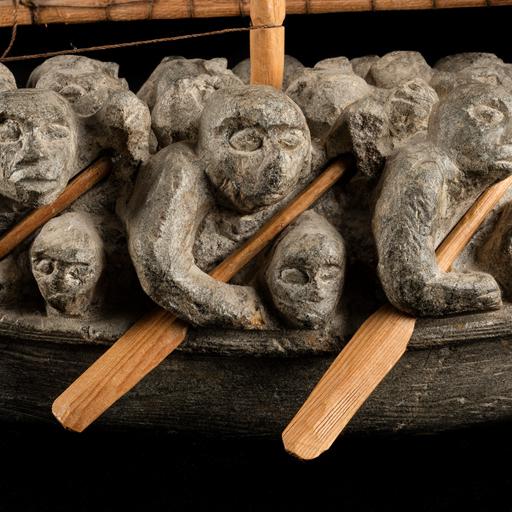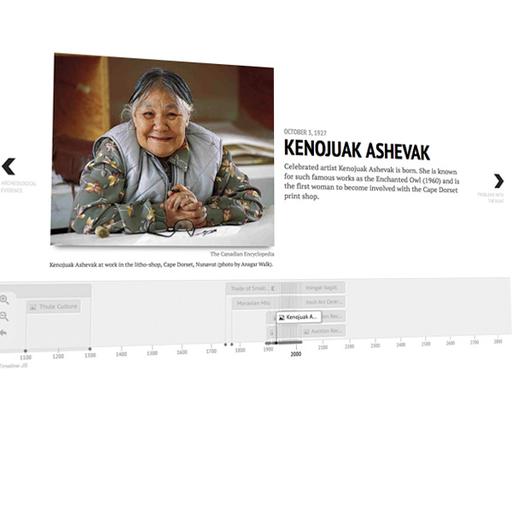Our Culture is not a Box of Trinkets: Open Letter to Opera de Saint-Étienne
Inuit Art Foundation | May 29, 2023
Categories: news
May 29, 2023
by Inuksuk Mackay
To the organizers, performers and producers of Opera de Saint-Étienne:
From Sunday, April 30 until Thursday, May 4, 2023, the Opera de Saint-Étienne in Saint-Étienne, France, presented La Nonne sanglante, or The Bloody Nun. Although the original stories were set in eleventh-century Bohemia, stage director and costume designer Julien Ostini instead set the play in the Arctic with knock-off Inuit costumes and set designs, featuring a full cast of non-Inuit actors. Conducted by Paul-Emmanuel Thomas, the production was based on the original play written by Charles Gounod which was based on a collection of Central European legends penned by celebrated French dramatist Eugene Scribe. The story follows a man named Rodolphe, played by operatic tenor Florian Laconi, who tries to escape hereditary conflicts by marrying Agnès, played by French-American soprano Erminie Blondel.
The set and costume design included Inuit-style clothing and tattoos, Arctic landscapes and a reproduction of the Majestic Owl print created in 2011 by internationally acclaimed Inuk artist Kenojuak Ashevak CC, ONu, RCA (1927–2013) from Kinngait (Cape Dorset), NU. The overt plagiarism appeared painted on Laconi’s chest throughout the opera’s run.
Many Inuit noticed the obvious plagiarism and mimicry of Inuit through a series of photos released on the opera’s Instagram account and attempted to alert those involved. The only artist to respond was Blondel, who posted a video apology on May 9 via her personal Instagram account. No one else from the production has responded publicly and after the influx of online comments, the Opera Saint-Etienne has left the post up but has turned off commenting.
In Blondel’s apology video she also noted that the director transposed the text of the opera to a post-apocalypse world with reference to many different places and cultures including the Arctic, Papua New Guinea, and Easter Island. I think this kind of “pan-Indigenous” approach speaks to just how misguided and unthoughtful the production team was in making these decisions.
According to the United Nations Declaration on the Rights of Indigenous Peoples, Article 11, “Indigenous peoples have the right […] to maintain, protect and develop the past, present and future manifestations of their cultures, such as […] designs, ceremonies, technologies and visual and performing arts and literature. States shall provide redress […] which may include restitution, developed in conjunction with indigenous peoples, with respect to their cultural, intellectual, religious and spiritual property taken without their free, prior and informed consent or in violation of their laws, traditions and customs.”
Despite this assertion from the UN, it is common for Inuit to encounter all too familiar retorts when raising issues that involve cultural theft, such as “art should belong to everyone,” or “we are all one race; the human race,” or “the intention was to honour your culture” or “Inuit use modern amenities so that means everything is fair game.”
For folks experiencing confusion around this, I would offer that non-Inuit can only be guests to our culture. How do you behave when you are a guest? You must be invited in; you don't go into rooms with closed doors and you don't take anything from your host that has not been offered.
Colonizers invaded our homelands, destroyed what we valued, stole, harmed and murdered our children, and forced a way of life on us. It was a jarring imposition, not a natural evolution through respectful collaboration.
Inuit tend to be warm and welcoming, but many of us feel disrespected when outsiders, particularly colonial bodies, including the French and British, who actively sought to extinguish our way of life, assume they have a place in the culture we are painstakingly working to preserve.
Now that we are trying to pick ourselves up and connect to the culture we were punished for practicing, we feel the need to treat it delicately and nurture it back to health. This is why we become upset when grabbing hands reach in and touch and take as though our culture is nothing more than an old box of trinkets. Our cultural reclamation is in its infancy. We are in the early stage of recovering from attempted genocide. We ask all non-Inuit to refrain from interference as we re-establish the strength and vigour of our traditional ways of being that were and continue to be marginalized by colonizer nations. Plainly, what I am saying is “hands off.”
Please also consider that many Inuit still live below the poverty line. When we use the knowledge that has been passed down over thousands of years of our existence on our lands, to make tools and art to provide for our families, it is devastating to see non-Inuit walk in as if they have earned that same right simply because they liked something. They do not have the knowledge, context and teachings that go along with whatever it is they are imitating. It is misinformation, counterfeit. It is stealing our right to tell our own stories. When in doubt, my advice is to stick with showcasing something from your own culture, engage in meaningful collaboration, and continue to support and enjoy how Inuit use our incredible skills to create and share on our own terms.
Born and raised in Yellowknife, NT, with roots in Nunavut’s Kivalliq Region, Inuksuk Mackay grew up both on the land and in the city. Mackay is an Inuk writer, performer, photographer, and filmmaker. She has written, directed and performed in several films, including the short film, Little Man, which won the People’s Choice Award at the 2017 Dead North Film Festival. Her writing has been featured in the Inuit Art Quarterly and Uphere Magazine. She has also worked as a performer with the Juno Award–winning band, Quantum Tangle, and currently performs with new throatsinging sensation, PIQSIQ, for whom she wrote a short piece of fiction that featured as an audiobook in their most recent album Taaqtuq Ubluriaq: Dark Star.


